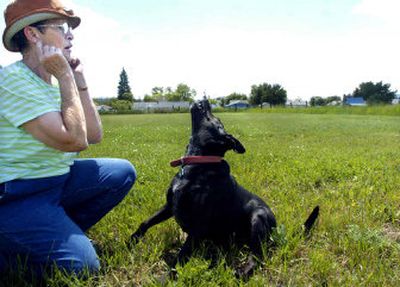Property sticker shock

Spokane Valley resident Shirley Torgrimson was shocked when she received her property assessment from Spokane County last week. Last year, her pastureland was assessed at $2,000, and she paid $40 in taxes on it. This year, the value jumped to $26,000, the 67-year-old retired woman said. And since property is taxed based on its value, Torgrimson is worried that a much bigger tax bill will arrive in the mail. “I’m mad as hell and I won’t put up with it,” said Torgrimson, who began calling the
Spokane County Assessor’s Office at 8 a.m. Monday, trying to appeal the assessment.
Torgrimson joined hundreds of taxpayers who have been calling Assessor Ralph Baker’s office all week. Baker said the phones have been ringing constantly since assessment notices went out informing residents of property values that have risen by an average of 18 percent countywide.
However, Baker cautions people against jumping to conclusions. Higher valuations do not necessarily mean higher taxes, he said. It may mean that the amount people pay per thousand dollars of assessed valuation – called a levy rate – will drop. Most taxing districts are limited to annual budget increases of 1 percent, he said.
“We don’t know that taxes are going up,” said Baker, who said the assessed value of his own Sunset Hill home rose by $111,000 in the last year, a 60 percent increase. “I know that taxes are not going to go up as fast as real estate prices are going up right now.”
The average price of a home in Spokane County rose 9 percent from 2003 to 2004 and, so far this year, it’s running 12 percent ahead of that, said Rob Higgins, executive officer of the Spokane Association of Realtors.
Though the assessor is required by state law to assess property as close to its market value as possible, generally it falls somewhat behind, Baker said.
“Values are increasing, so people’s equity is going up, which long-term is going to be positive for them,” Higgins said.
That was small consolation for Torgrimson, who said her pasture land couldn’t be worth $26,000 because it’s land-locked and can’t be used as anything except a back yard. Though she and her husband are older than 62, they don’t qualify for the exemption given to senior citizens because their household income is too high, she said. So she’s planning to appeal.
Appeal forms are due 30 days after the mailing date of the assessment notices. Appeals are heard by the county’s Board of Equalization, a county-appointed body that operates separately from the assessor. If the board rules that a value must be decreased, the assessor is required to do so, Baker said.
Donna McKereghan, who owns a three-bedroom, two-bathroom house in northeast Spokane, said the assessed value rose from $54,100 to $76,900, a 42 percent jump. McKereghan said she is disabled and hasn’t been able to find work for a year. If the new valuation results in higher taxes, she said, she doesn’t know how she’ll manage to pay them.
“It’s just one more thing,” McKereghan said.
Baker said residents whose property values rose by about the same percentage as their neighbors’ probably won’t be hit with higher taxes. But the county won’t know how much money is needed until tax districts – covering cities, fire departments, schools, libraries, parks and other entities – turn in their budgets at the end of the year. Tax bills, handled by the county Treasurer’s Office, are sent after Feb. 15, with first-half payments due April 30.